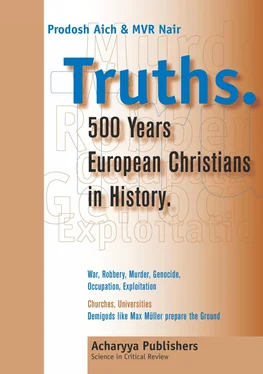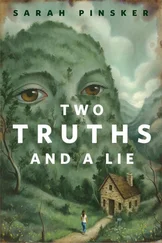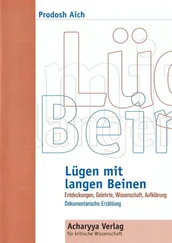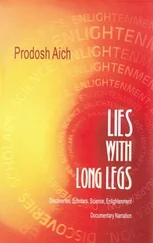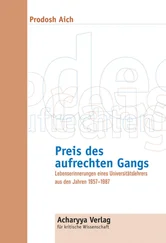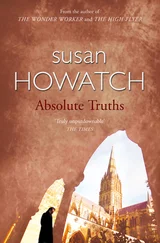*****
The title of the book “A HISTORY OF ANCIENT SANSKRIT LITERATURE” assumes that Max Müller, M.A.has thoroughly studied ancient Indian history, ancient Indian literature and ancient Indian culture handed-down in an ancient Indian language called Sanskrit. We shall search for primary sourcesto check up these claims.
We have read the sub-title of the book: “SO FAR AS IT ILLUSTRATES THE PRIMITIVE RELIGION OF THE BRAHMINS” several times. The sub-title tells that Max Müller, M.A.has also acquired thorough knowledge of religions in generaland specific knowledge of the religion of the Brahmins. And that the religion of the Brahmins has been qualified by Max Müller, M.A.as primitive. We shall search for primary sources to check up where and how he acquired these claimed competences. And we shall also have to know how Max Müller, M.A.defined the term “primitive”.
*****
Further we are informed by the inner title page of the book that Max Müller, M.A. has also been attached to many learned institutions. We come to know as well that, at least in 1859, Max Müller was “Fellow of All Souls College, Oxford; Correspondent de l'Institut lmpérial de France; Foreign Member of the Royal Bavarian Academy; Honorary Member of the Royal Society of Literature; Corresponding Member of the Asiatic Society of Bengal; and of the American Oriental Society; Member of the Asiatic Society of Paris, and of the Oriental Society of Germany; and Taylorian Professor in the University of Oxford.”
We admit we are unable to take this inner-title-page of the book. We do not find any systematic relationship between these 8 (eight) different institutions and Max Müller, M.A. as the author of a book titled: A HISTORY OF ANCIENT SANSKRIT LITERATURE. As simple-minded readers and searchers for truths we wished to comprehend the purpose of all these information on the inner-title-page of this book. Yes, what could be the purpose? What is the purpose?
Then we stumbled on “Fellow of All Souls College, Oxford” on the top of the list and “Taylorian Professor in the University of Oxford” at the end. A college, we all know, is not a university. Colleges are for teaching and not for research. British Colleges at Oxford are no exceptions. For all practical purposes, “All Souls College” at Oxfordis biased by Christian beliefand not laden with knowledge. Colleges like All Souls College do socialize its pupils to become Christian missionaries at a more effective level than those trained solely in Christian Churches and all that goes with it. Does this mention indicate his confession of being a Christian missionary? Or should it create some other associations? We are on alert. “Fellow of All Souls College, Oxford” should not create associations that All Souls College at Oxfordis a part of Oxford University.
“ Taylorian Professor in the University of Oxford ” does not indicate the subject. We became curious and did search and digging. The results take us in surprise. Here are the results:
A “Taylorian Professor in the University of Oxford” did never exist. There was indeed a Taylor Institution at Oxford, which was not a part of Oxford University. This institution organized lessonsin “modern” European languages. Here is the story of the Taylor Institution in a nutshell. None of the colleges at Oxford, or Oxford University used to teach “modern languages”. In 1724, George Itried to initiate teaching of French and of German to train future diplomats at Oxford University. He failed. The Authorities of the University rejected the initiative. Oxford University continued teaching Greek and Latin only.
Years later, the notable architect Sir Robert Taylor(1714-1788) fixed in his will in favour of his only son, Michael Angelo Taylor, that a part of his huge fortune was to be spent to set up a foundation “for the teaching and improving those European languages … essential to Diplomatic and commercial pursuits” at Oxford. “After various legal complications and the death of Sir Robert's son, Michael Angelo, in 1834, the University inherited the sum of £65,000.” After many controversies “the Taylorian statute finally passed on 4 March 1847” for teaching European languagesand started with French and German. Even the newly constructed building of the foundation differs distinctly from that of Oxford University.
It is known that Oxford University added the Boden Chair for Sanskrit to Greek and Latin in 1832. We are however unable to comprehend how a Taylorian Professor for Modern Languages, in the University of Oxford or just at Oxford, should be qualified to write a scholarly book on “A HISTORY OF ANCIENT SANSKRIT LITERATURE, SO FAR AS IT ILLUSTRATES THE PRIMITIVE RELIGION OF THE BRAHMINS.” Was it not a subject for the holder of the Boden Chair for Sanskrit? We have taken this issue as a marker.
*****
We also take note of several different status-descriptions in this remarkable list as well: Max Müller, M.A.is “Correspondent” Member, “Foreign” Member, “Honorary” Member, “Corresponding” Member and “Member” of an “Institute”, of an “Academy” in “Societies” in different Countries. What do these different types of membership indicate? It is even more puzzling when we look into the types and details of institutions mentioned. Because we stumbled, we wanted to get more details about these institutions. Here are the results:
Ø Correspondent de l'Institut lmpérial de France . This Institute is in France happened to be not royal, not national, but it is imperial. Imperial has something to do with empire and empire has something to do with a geographically extensive group of lands and peoples, is something like making a conquest, an occupation, isn’t it? When was the institution founded, by whom, for what purpose? For how long did it exist? Did it really exist? We have reasons to maintain our scepticism as we don’t find answers to our questions.
Ø Foreign Member of the Royal Bavarian Academy . We assumed Max Mülleris a German name. And Royal Bavarian Academy must have been a German institution. Our assumptions are correct. Why then “foreign member”? While trying to collect a little more information on this institution we stumbled again. “Royal Bavarian Academy” of what? Electorof Bavaria Max III Josephfounded in 1769 the Bavarian Academy of Sciences and Humanitiesin Munich. Then a school of Arts for drawing and graphicin 1770. King ofBavaria Maximilian I Joseph of Bavariaelevated this school to an Academy of Fine Artsin 1808 which was also called the "Royal Academy of Fine Arts" and never Royal Bavarian Academy. We wonder about this type of slip in the inner title-page of a scholarly book.
Ø Honorary Member of the Royal Society of Literature . It must had been: The Royal Society of Literaturein Britain, founded in 1820 by King George IV, in order to "reward literary merit and excite literary talent"
Ø Corresponding Member of the Asiatic Society of Bengal . To be accurate Max Müller’s “Asiatic Society” could at best be the “ AsiatickSociety of Bengal”, founded in 1784 in Calcutta by Sir William Jones. He is considered to be a scholarly demigod. A detailed hi(story) will follow after a while in a separate chapter. At present this much: The “Asiatick Society of Bengal” was the first factory for forging history and for brainwashing. And Sir William Joneswas a high-graded swindler.
Читать дальше
